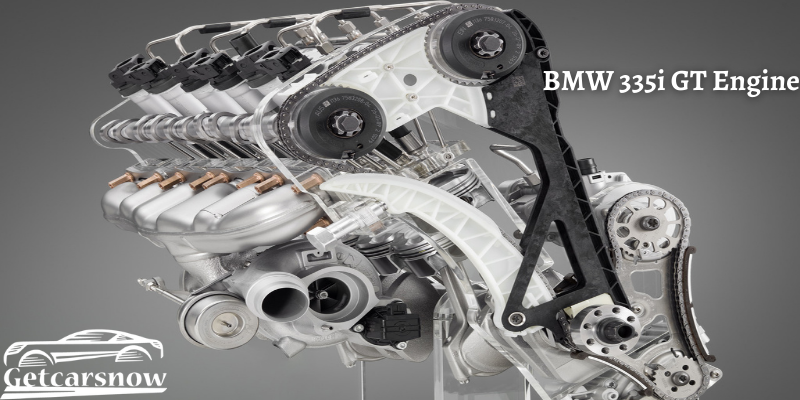
BMW 328i Engine – Complete Information
The BMW 328i engine has been around for more than three decades. The 3-Series is considered by many BMW fans to be the brand’s heart and soul, as a driver-focused sedan with space for four that can come alive on twisty roads when commutes become intriguing. It’s a direct successor of the BMW that first debuted in 2012 and established the company’s image. The BMW 328i engine is powered by a 3 Litre 24v Inline 6 petrol engine that develops 245 BHP and accelerates the 328i from 0 to 62 mph in 6.5 sec, with a max speed of 170 mph. It’s available with either a six-speed manual or a six-speed automatic transmission. We will be discussing the BMW 328i engine.
Table of Content
- Engine Specifications
- History of 328i Engine
- Problems of BMW 328i Engine
- Conclusion
Engine Specifications
The 6-cylinder 328i engine is the most powerful in the series. It’s smooth and quiet, but thrilling to drive, with a 0-60mph time of 6.5 seconds and a top speed of 142mph. With a 0-60mph time of 6.5 seconds and a top speed of 170mph, the 328i is one of the best engines in the series.
From 2012 to 2015, the BMW 3 Series 328i Sedan was the top-of-the-line model in the 3 Series lineup. The 3.0-liter engine in this 328i sedan delivers 245 horsepower and 246 lb-ft of torque.The BMW 3 Series 328i Sedan comes with an automatic transmission. This engine produces 350 Nm of maximum torque and 245 PS of maximum power at 6500 rpm. The power is delivered to the road via rear-wheel drive and a 6-speed manual transmission.
History of 328i Engine
At first, a new version of the venerable 3 Series appeared, featuring engine enhancements such as dual-overhead-camshaft designs and four-valve cylinder heads. The VANOS technology, which allows for variable valve timing to boost power and efficiency, was also included in the 3 Series. The generation’s top-of-the-line engine was a 213 horsepower inline-six.
With the fifth-generation 3 Series, the 328i gasoline engine was available. The engine was upgraded with common-rail injection and a variable-geometry turbocharger, increasing output to 245 horsepower. The 328i was the next big step forward in 3 Series engine development, debuting in 2012.
Problems of BMW 328i Engine
Leaking Oil Filter Housing Gasket
Leaking oil filter housing gaskets are the most common problem with 328i engines, and it’s difficult to locate one that hasn’t experienced this problem at some point. The oil filter housing has two connections, one to the engine block and the other to the oil cooler.Over time, these gaskets become stiff and brittle, resulting in loss of oil. Gaskets are affordable and simple to replace.
Fuel Pump
The 530i’s fuel pump system has been known to malfunction, causing poor engine performance, low power, and rough idling. Because the part was altered as a result of the failures, all six pumps will need to be replaced, which is a costly operation. It has a few flaws, since it frequently misfires and is more prone to stalling.
Valvetronic Stepper Motor
In addition to Vanos, these engines have a Variable Valve Lift system called Valvetronic. A stepper motor and a set of levers control the amount of intake valve lift. Despite its complexity, the stepper motor itself is the only common failure point, which can be seized. BMW uses a sophisticated crankcase ventilation system that includes a series of separators and a pressure regulating membrane.If this diaphragm breaks, large amounts of oil vapor enter the intake manifold, resulting in blue exhaust smoke and excessive oil consumption. Although the diaphragm is not available from BMW as a replacement part.
Failing Valve Cover Gasket of BMW 328i Engine
The engine oil is kept sealed by the valve cover. As a result, oil will flow if the gasket fails. Typically, oil leaking from a leaking valve cover gasket ends up on the ground. It’s possible that it’ll end up somewhere else in the engine. Engine oil splattering on an automobile’s spark plugs is rather uncommon. If the valve cover seal isn’t working correctly. The engine will most likely start misfiring if this happens. The cylinder heads’ gaskets are designed to keep oil out of the combustion chamber. Valve stem seals are also in charge of keeping the intake and exhaust valves lubricated.
Tensioners
A distinctive screaming sound emanates from the engine area due to worn tensioners and idler pulleys. If such noises are heard, a quick visual inspection of the engine belts for cracks or damage is recommended. A defective belt could put the cooling system at risk, producing problems with the cooling system, alternator, and power steering.
Conclusion
The BMW 328i engine, which appeared to be slow in early versions, was gradually upgraded. The power increased as the torque increased, and the mileage matched that of BMW’s newer versions. The improved engines in the 328i model generate new interest and demand among customers. The engine was good, but it had problems like any other car at the time but overall, the BMW 328i Engine performs as per the expectations.



